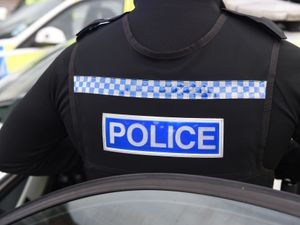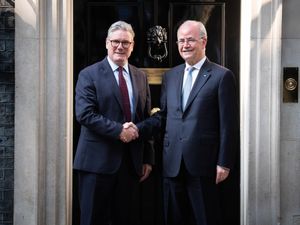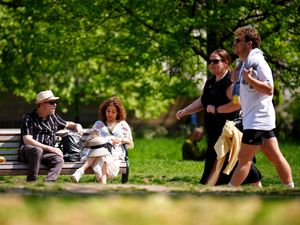Boris Johnson to chair Cabinet by videolink as he self-isolates
The Prime Minister has faced heavy criticism over shortages of protective equipment for frontline NHS staff.
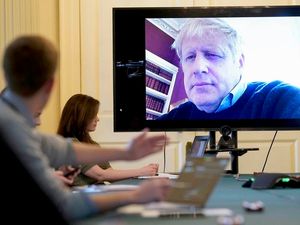
Boris Johnson will chair a meeting of his Cabinet by videolink as he continues to self-isolate in Downing Street after testing positive for coronavirus, amid growing pressure to get more protective equipment to health workers.
The Prime Minister has faced heavy criticism over shortages of personal protective equipment (PPE) for frontline NHS staff as well as the slow rollout of testing – issues which are likely to be discussed by ministers on Tuesday morning.
Last week, four people attended the meeting in person – including Mr Johnson, Health Secretary Matt Hancock, Cabinet Secretary Sir Mark Sedwill and chief medical officer Professor Chris Whitty – while others dialled in on the Zoom app.
The PM and Mr Hancock have since tested positive for Covid-19, while Prof Whitty is self-isolating after developing symptoms. In Tuesday’s meeting, all attendees are expected to join by videolink.
It comes as 1,408 people are confirmed to have died in UK hospitals after testing positive for Covid-19, as of 5pm on Sunday.
Former health secretary Jeremy Hunt has also voiced further concerns about the lack of testing in the UK after it emerged the Government had still not hit its target of 10,000 tests a day.
This is despite earlier claims by Mr Hancock that the target had been reached.
The World Health Organisation (WHO) has urged countries to “test, test, test” as a key part of their strategy to beat the virus.
But officials have admitted the UK does not have the same capacity as other countries that are testing more, including Germany which is conducting around 70,000 per day.
Mr Hunt told the Guardian: “The big advantage we now have is evidence that testing works in other countries.
“We can see that Asian countries have been spectacularly more successful than European ones in avoiding mass lockdown.”
Meanwhile, Transport Secretary Grant Shapps addressed concerns over whether police were being heavy-handed in dealing with enforcement measures.
He told BBC Breakfast: “There will be one or two instances where they have perhaps not approached it in the right way but in general, actually, across the country not only are people complying very well but, generally speaking, the police are taking a very sensible approach to it.”
Asked why the National Police Chiefs’ Council had thought it necessary to call for consistent guidelines to be followed, Mr Shapps said there had been issues that the police were trying to iron out.
“I think there are, if I may describe them as such, teething problems or the police trying to work out which is the most effective and best approach,” he added.
“I will leave that to the police.”
It comes as the British Medical Association said healthcare workers need clarity from ministers about what risks they should not have to take if they do not have adequate PPE.
Earlier, Education Secretary Gavin Williamson said Mr Johnson’s workload was undiminished despite him having to self-isolate after becoming infected.
“The energy and the amount of work that is coming out of No 10 and the flat that he is isolated in has not tapered away,” he told the PA news agency.
“I think self-isolation has increased the prime ministerial work rate. He is absolutely all over it.”
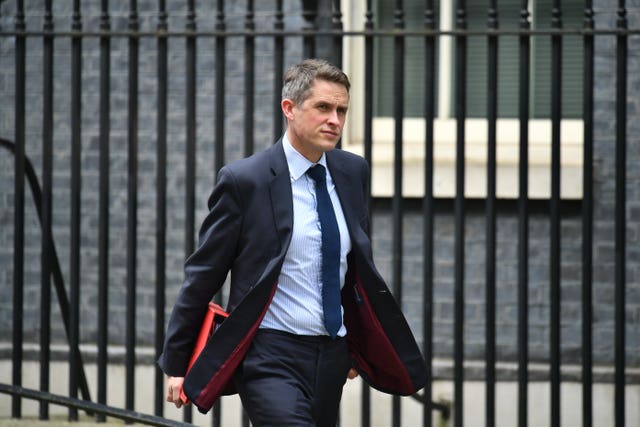
Mr Williamson rejected criticism that Mr Johnson became infected because ministers ignored their own rules of social distancing.
“We all recognise that London and particularly central London has been a real hotspot for the virus,” he said.
“Just the length of time the virus takes, most people will have picked up the virus before these new rules have been put into place, but it goes to highlight the importance of the new rules and the importance of people adhering to those rules.”
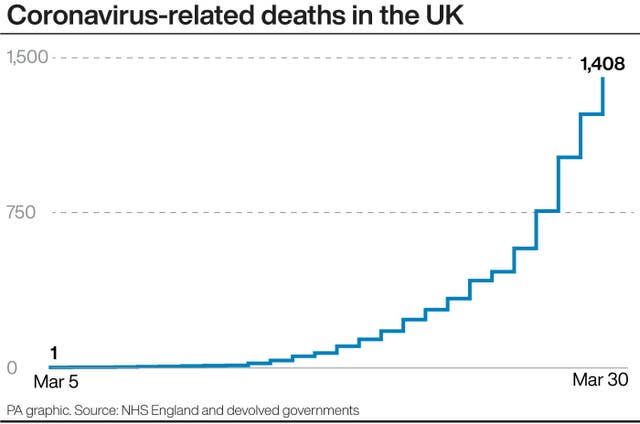
The Office for National Statistics is set to release figures on deaths involving coronavirus in the wider community, such as care homes.
The ONS will look at deaths where Covid-19 was mentioned anywhere on the death certificate, including in combination with other health conditions.
These figures are likely to offer detail on how many community deaths involve coronavirus, rather than just looking at deaths in hospital.
It comes after Sir Simon Stevens, chief executive of NHS England, revealed there had been almost a 50% rise in a few days in the number of people being treated for coronavirus in England’s hospitals.

He said on Friday that more than 6,200 patients were in hospital with Covid-19, but on Monday this figure had jumped to more than 9,000.
England’s chief scientific adviser Sir Patrick Vallance said the NHS was seeing around an additional 1,000 patients a day and described this daily rise as “stable”.
He told reporters at the daily press briefing: “I do expect that number to continue. I expect people coming every day to be about that, it may go up a little bit.
“And in two or three weeks you would expect that to stabilise and to start to go down a bit.”
Sir Patrick also said social distancing measures are “making a difference”.

